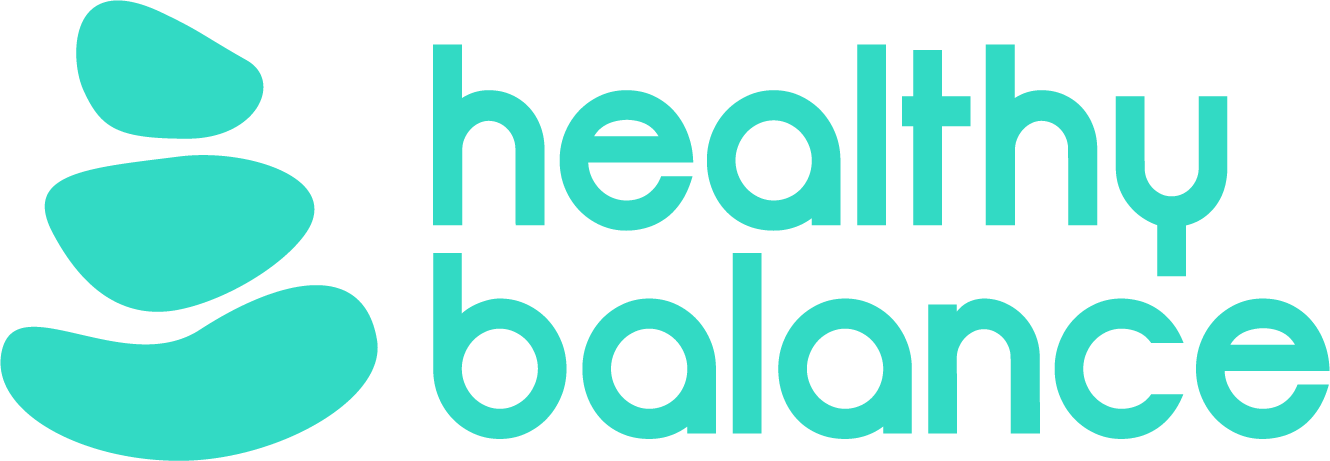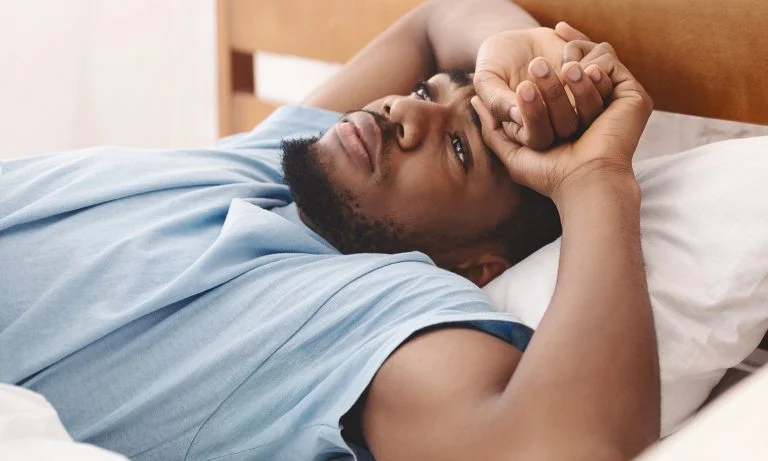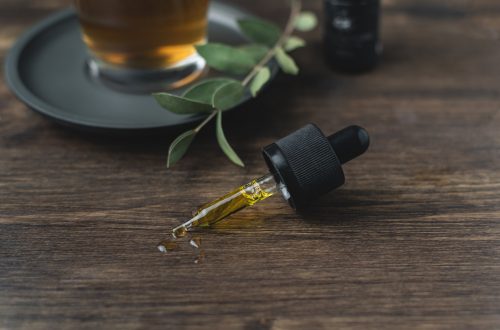A restful night’s sleep is vital to our overall health and well-being. But for those suffering from Parkinson’s disease (PD) sleep is more crucial because the body needs longer to repair and restore itself. The changes to the brain which are a part of PD can also lead to problems with sleep and some suffer from sleep problems before they experience any movement-related symptoms and PD is recognized.
Certain PD medications can disturb sleep. Some can make people feel sleepy throughout the daytime. It is not surprising that sleep-related symptoms are frequently reported by over 75 percent of patients with PD.
Sleep disturbances can impact your mood, health, and general quality of life. In addition, when people suffering from PD aren’t sleeping well the caregiver’s sleep can be affected, too. They also require restful sleep in order to remain healthy and be able to provide the most effective quality of care.
Table of Contents
Most Common types of sleep disorders
Nightmares
It is possible to experience nightmares when you’re anxious, stressed or depressed. You may also be taking a break from certain drugs, such as minor tranquilizers and antidepressants. Sometimes, they are caused by the result of a medication’s adverse effects and are common after a trauma or traumatic event.
Night terrors and sleepwalking
They happen during deep sleep and could be the result of stress or normal sleep patterns are disturbed. Both of these are more prevalent in children.
Paralysis of sleep
In sleep, during the dreaming (REM) stage of sleep, the limb muscles are weak and paralyzed. Some people could wake up and play out their dreams, or behave in a bizarre or risky manner such as binge eating or threatening their partner that they can’t remember later when they awake.
Hallucinations
Some people experience hallucinations when they fall asleep or when they wake up.
Narcolepsy
If you’re experiencing extreme morning sleepiness, it could be the result of a disorder known as Narcolepsy. It is characterized by frequent sleepiness during the day and hearing vivid voices and images as you go to bed.
Sleep apnoea
Sleep apnoea refers to the fact that your breathing stops for short intervals while you sleep which can cause sleep disturbances and unsatisfactory sleep.
Ways for Treating Sleep Disorders
The most important factor to feel refreshed is to have a consistent pattern of rest, not the amount of sleep you’ll get.
Setting up the basis for a routine
- Sleep only at the point you are exhausted enough to go to sleep. If you find yourself taking an extended time to sleep, put off getting to bed until at which you typically go to sleep and rise in the same time as you normally do. This will mean that you’ll have less time to lie in the bed, and more time to sleep and your sleeping pattern will improve.
- Avoid watching television or using your laptop in your bed. These are all activities that are awake.
- If you’re not able to get to sleep within 20 minutes, stand up and lie down in a different room. Relax like listening to music, or until you’re exhausted enough to return to bed.
- Do not take napping during the day. If you’re really tired, taking a quick nap after lunch may be beneficial. Sometimes sleeping promotes sleep.
- After a long journey, attempt to adjust to the local time. No matter how tired you may feel, sleep at a time that is close to your local time of bed and wake up relatively early in the morning. Then, you should swiftly adjust to a new routine.
Sleep assists
- Make sure you are comfortable in your bed. Are your bedding and bed well-fitting? Are the temperatures and lighting levels suitable for you? Is there sufficient fresh airflow in the space? If you’re constantly disturbed by noise, you can try earplugs.
- Sleep in until bedtime avoids any activities or work.
- Enjoy the radio at a low volume to keep your mind off of all daytime worries.
- Take a bath in a warm tub to help relax.
- Try a relaxation routine prior to going to sleep.
- Hop pillows or add a couple of drops of lavender essential oil in your shower or on the pillows that can assist you in relaxing.
- Herbal sleep aids for which there is evidence for passionflower, valerian, lemon balm, and hops. Take care when you are taking medication, since herbs may trigger adverse reactions or reduce the effectiveness of the medication.
- Refrain from thoughts that aren’t yours with a soothing sentence repeatedly to yourself.
- Imagine a landscape or scene that brings pleasant memories to you. If you get up at the night, do your relaxing routine.
Lifestyle enhancements
- Do not drink coffee or tea, cocoa, or coca. Choose decaffeinated or herbal beverages instead.
- Limit your evening drinking to a couple of drinks, and stay clear of drinks that could have disturbed your sleep in the past.
- Fitness-oriented people are more comfortable generally speaking. If you’ve not done any physical activity throughout the day, it’ll be difficult to rest comfortably. Try walking in the evening before bed; however, exercising prior to bedtime can increase your energy levels and make it more difficult to sleep.
- If you are in need of eating late in the night, proteins that are digested slowly are superior to sugary carbohydrates that can boost your energy at the time you want to take a break.
- If you feel exhausted during the daytime or are doing an extremely stress-inducing job and carrying too many obligations, you’re likely to be unable to rest well. Sleepiness can be a sign of more general issues that you might have to examine your workload or improve your assertiveness or your time-management and decision-making abilities.
Sleep Aids
The use of medicines may be beneficial in the treatment of some sleep disorders. However, because sedating medicines generally have the potential to cause dependence and misuse, their use should be monitored by a physician. Some of the prescribed medications that are prescribed to treat specific sleep disorders are:
- Triazolam, a benzodiazepine, is a common example Artvigil 150, or Waklert 150 mg.
- The newest, non-benzodiazepine-based sedatives are that include Zaleplon (Sonata) and Zolpidem along with the eszopiclone (Lunesta), Modalert 200.
- Ramelteon is an insomnia drug that functions in a similar way to Melatonin.
- Suvorexant (Belsomra) is the very first drug in the new class of drugs called orexin receptor antagonists to treat insomnia.
- Buy smartpills online from Smartfinil.net
- Antidepressant drugs have been utilized to treat insomnia in those who have depression. Examples include trazodone, amitriptyline, and doxepin.
- In sleep apnea as well as other sleep disorders where obstruction of the airways is a major issue nasal decongestants can offer some relief. However, many physicians advise patients suffering from sleep apnea to not to take sleeping pills or other medications that cause sedation, because the patient could be prevented from awakening enough to trigger breathing, which could cause injury to the brain or even sudden death.
Melatonin is a chemical that is released by the brain and can induce the sleep cycle, was tested in the form of a supplement and has been advertised as a natural sleep solution for treating insomnia. However, research has shown that it’s generally ineffective for treating common kinds of insomnia, with the exception when it is necessary for those with low levels of melatonin.
Cpap device (continuous positive airway pressure, a device that is worn over the face to keep the airway wide by keeping a constant pressure) or AutoPAP (PAP administered over several pressure levels) along with dental devices have proven to be efficient in managing breathing disorders related to sleep, including sleep apnea. CPAP is often the first option of treatment for patients who suffer from sleep apnea that is obstructive. Surgery may be beneficial for some patients and can aid patients in responding to CPAP. Implantable, newer devices that work to stimulate those muscles in the airways in sleep can also be an effective treatment option for certain patients.






